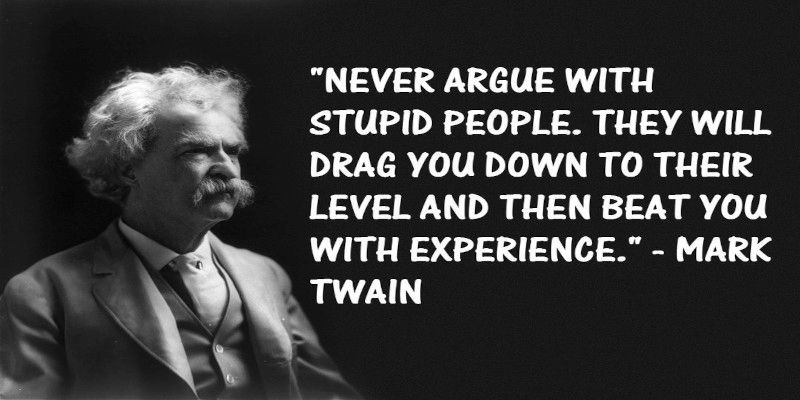Table of Contents
ToggleThe most important thing to understand before you can let go of the need to be right is that it’s impossible to be correct constantly.
Being human inherently means being imperfect. As a consequence, we can’t always be accurate, since we’re bound to be incorrect eventually. No matter how intelligent and perceptive we might be.
It’s also incredibly annoying to argue with someone who thinks they’re always right, and never wrong. These are my tips to let go of the necessity to be correct.
How do you let go of the need to be right?

Acknowledge that it’s not possible to be correct all the time
It’s simply not feasible to be right all the time. No matter how smart and experienced you might be, life’s too short to know it all. Not to mention that we’re imperfect, and only human in the end.
That’s why you will make mistakes and be in the wrong at times. That’s precisely why you need to realize and accept that you’re bound to make errors, and that it’s no shame to fail as long as you learn and improve from your faults.
Don’t try to be right all the time
Don’t try to be correct just for the sake of winning the argument, or because you’re trying to prove yourself to others, or to feel better.
That just makes you come off as insecure, or as someone who’s suffering from a superiority complex since you’re unable to cope with the simple fact that you’re flawed, just like everyone else in this universe.
You can’t “force” others to accept your truth

Even if you are factually correct, that still doesn’t give you the right to force others into accepting your ideas. That would simply mean you’re a tyrant who doesn’t place any value on the right for individual thought and ideas.
Sure, I think it’s a good thing to aim at the truth and to make an informed decision to make the best choice with the information available to you.
But you can’t coerce those around you to seek out empirical evidence and objective truth, even if it would be beneficial for them in the end. People have the freedom to choose, and we should respect that right.
Mind your own business
Don’t waste your time trying to convince others of your reality. This will most likely not work, or they might just agree with you for the sake of getting rid of your whining and resolving the uncomfortable argument.
You might feel like you’ve won, but this simply isn’t true in most instances. I’m not saying that you shouldn’t try to make your point by making a strong case for your idea by staving it with facts and data.
But understand that you can’t convince others through force. You can show someone the way, but they must walk the path for themselves. And if they’re not willing to, then there’s nothing you can do about it.
Strive for improvement, not perfection

You shouldn’t strive for perfection since that’s a utopia that nobody can realistically attain. But improvement is well within every single individual’s grasp if we’re willing to put in the time and effort.
That’s why you should aim to get better, make sounder decisions, and be accurate more often. However, never confuse all those things with the ability to be correct all the time.
Don’t try to impress or please other people
You should behave the way you genuinely think is the proper manner to conduct yourself instead of trying to impress or please others due to insecurity, or because of a superiority complex.
Nobody is impressed by someone who wins a discussion because they want to be in charge. I’m more fascinated by someone humble enough to accept contrasting points of view, and who can own up to their mistake(s).
Don’t blame and shame others

Don’t blame others when they have a different perspective than you do, and don’t try to shame those around you into accepting your beliefs as the sole truth.
Being unable to accept that everyone thinks differently and that you might just be wrong regarding certain matters just reeks of insecurity. We don’t like being coerced into submission, which is basically what you’re doing when you want people to accept your reality.
Practice forgiveness
Forgive others when they hold on to a false premise, and cut yourself some slack as well when you notice that you held on to a false belief for longer than you should’ve.
Again, nobody is perfect, which means that mistakes are part of the course. But admitting and forgiving yourself when you fail is what’s required to grow.
Try to reframe negative habits into positive ones
Desiring to be the one who’s correct all the time is a negative habit because it’s unrealistic, and doesn’t lead to change.
Desiring to improve and make better decisions since you have a more accurate view of the world can only be encouraged.
Accept that you can’t be in constant control

The only person we’re in control of is ourselves. We can show others the way, but we can’t force them to accept our ideas, even if they’re 100% true.
Since we can’t regulate what people think, or what beliefs they hold, the only option we’re left with is to accept that everyone is entitled to their own opinion.
Only try to control things when possible and when it’s positive to do so
Controlling the outcome is good, but trying to manipulate every little thing to a fault is impossible and will undoubtedly create anxiety and insecurity.
The one you should try to master is yourself and your mind. What others do and think is their issue that they need to figure out themselves.
Guiding our peers is fine if they want your aid, but that’s about the only thing we can do. You can only assist people who want to be helped.
Apologize when in the wrong

Learn to apologize when noticing you were wrong or made a mistake. This shows a humble and mature personality that attracts other people since it is considered a redeemable and humanizing trait.
If you’re unable to admit when you’re mistaken, then there’s no capacity for growth. If you think you’re always correct, then what’s the incentive to learn anything new? Going by that logic, you already know everything there’s to know, which simply isn’t true.
Practice acceptance and thankfulness
Accept that you and everyone else in this world is unique. As such, everyone will have their own beliefs shaped by their individual experiences.
That’s why we should acknowledge that we all have different ideas and notions, all the while being thankful that we’re not precisely the same. What a boring and uneventful world that would be, without any possibility to evolve since everyone would think, and consequently, act the same.
Take the time to get in touch with your thoughts and feelings

Reflecting on our thoughts and feelings leads to a better understanding of ourselves, and other people as well.
We can’t fix something when we don’t realize it’s broken. That’s why recognizing in what situations we tend to try to be right is such a powerful tool before we can learn to let go.
Frequently Asked Questions (FAQ)
What is the need to be right?
Why do I always have to be right?

The psychology behind someone who always has to be right is that they’re probably suffering from self-doubt since it’s impossible to never be incorrect.
It’s common for people to try and hide their uncertainties or sense of superiority by the narcissistic tendency that’s always trying to be right. They’re constantly trying to prove others wrong to demonstrate they’re right. In reality, they’re trying to mask their own imperfections.
On the flip side, it’s also a possibility that some folks truly feel better than their peers. As a result, they feel the need to be right because, in their mind, they know best. They leave no room for the chance that others might know better, and that they can be wrong at times.
What personality type thinks that they’re always right?

The personality type that thinks they’re always right is the kind that’s argumentative, overconfident, and arrogant. That’s because they overrate themselves and their abilities, unable to see their imperfections and limitations.
Another personality style that is likely to feel the necessity to be correct is the doubtful individual. That’s because they lean toward overcompensating for their shortcomings and doubts.
The main difference is that these insecure types don’t always think they’re right. Rather, they’re trying to win the discussion anyway to prove themselves worthy of the praise and attention of others.
How do you argue with someone who thinks they are always right?

It’s impossible to argue with someone who always thinks they’re right. Especially when they won’t listen to reason, truth, or facts.
There are times when you can make people understand the error of their ways. But someone who truly thinks they’re always correct is unlikely to see their faults.
That’s exactly why you shouldn’t even try to debate with someone who thinks they’re never wrong. There’s nothing to be gained from such a discussion except negative emotions such as annoyance, and even anger in some instances.
What do you call a person who thinks they are always right?
A person who thinks they are always right can be called many things, such as:
- Narcissistic
- Adamant
- Insistent
- Dictatorial
- Unshakable
- Indomitable
- Unrelenting
- Intransigent
What they are for sure is overconfident and arrogant since it’s impossible to be correct constantly.
Why do I feel the need to be right in a relationship?

You can feel the need to be right in a relationship because you’re insecure, trying to control your partner, or because you feel superior to them.
This behavior will lead to severe issues. Especially when the problem is left unchecked and allowed to grow larger over time because your spouse is too afraid to address this concern with you.
A relationship is a partnership. And that’s why you both have to work together with your unique strengths and weaknesses to make it work and to balance things out.
Final note

Someone who thinks they are always right while everyone else is wrong should be considered toxic, and not the kind of person you want to be around.
Not to mention that it’s incorrect by default since humans are imperfect, which is why we all make blunders as a result.
Realizing when you’re displaying this antagonistic behavior, and that it’s impossible to never be wrong, are the first steps to fix this harmful conduct. That’s why introspection is such a critical and beneficial tool to solve our issues.







3 thoughts on “How to let go of the need to be right”
Comments are closed.